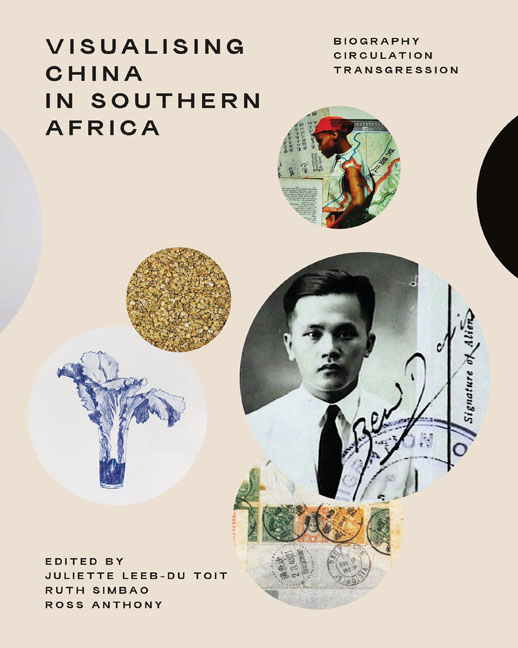8 - Shifting Urbanity and Global China in Conversation: Views from Johannesburg and Lusaka
Published online by Cambridge University Press: 24 November 2023
Summary
In major cities, the perpetual quest for money and profit tends to translate not only in to accelerated circulation of commodities, a sustained individual hustle, but also in a continuous production and alteration of the built environment. In Johannesburg and in Lusaka, similar observations can be made when focusing on the spatial materialisation of a multifaceted and layered Chinese presence. Largely driven by an economic impetus, these different forms of global China have left a more or less tangible imprint on the urban fabric, with direct connections to specific sectors and phenomena in each of these two cities.
Through a combination of photographs and text, this chapter offers a multi-sited and flexible reading of some of these Chinese features, both in relation to places and lived experiences. In parallel, it reflects on the spatial and social ‘thickness’, derived from Clifford Geertz's (1973) interpretation, in these two urban environments. The essay draws on a larger and collaborative research project centred around the reciprocity and dynamic tension between forms of Chinese involvement and urban shifts in Johannesburg and in Lusaka. With Chinese spaces in urban Africa often framed as exotic, different, and operating in parallel to the host society, the project's underlying aim has been to disrupt and (re)imagine how this interplay is currently conceived, studied and conceptualised. As such, it explores the differentiated ways in which these spaces have come into existence, how they are shaped by contextual realities, and are largely entangled in complex city-making processes.
In early March 2020, Erwin Pon, the chairman of The Chinese Association (TCA) in South Africa, appeared on a few locally televised news reports to comment on fears related to what was, at the time, the still-limited spread of the coronavirus. One of these interviews took place in Derrick Avenue in Cyrildene, Johannesburg's main Chinatown. Even before the pandemic reached South Africa, its reputed genesis in the Chinese city of Wuhan triggered a direct association with, and prejudice against, Chinese people and spaces, irrespective of their location. On several occasions Mr Pon, a South African-born Chinese citizen, spoke out against the propagation of xenophobic remarks, anti-Chinese discrimination, stereotyping and broad generalisations.
- Type
- Chapter
- Information
- Visualising China in Southern AfricaBiography, Circulation, Transgression, pp. 154 - 187Publisher: Wits University PressPrint publication year: 2023

